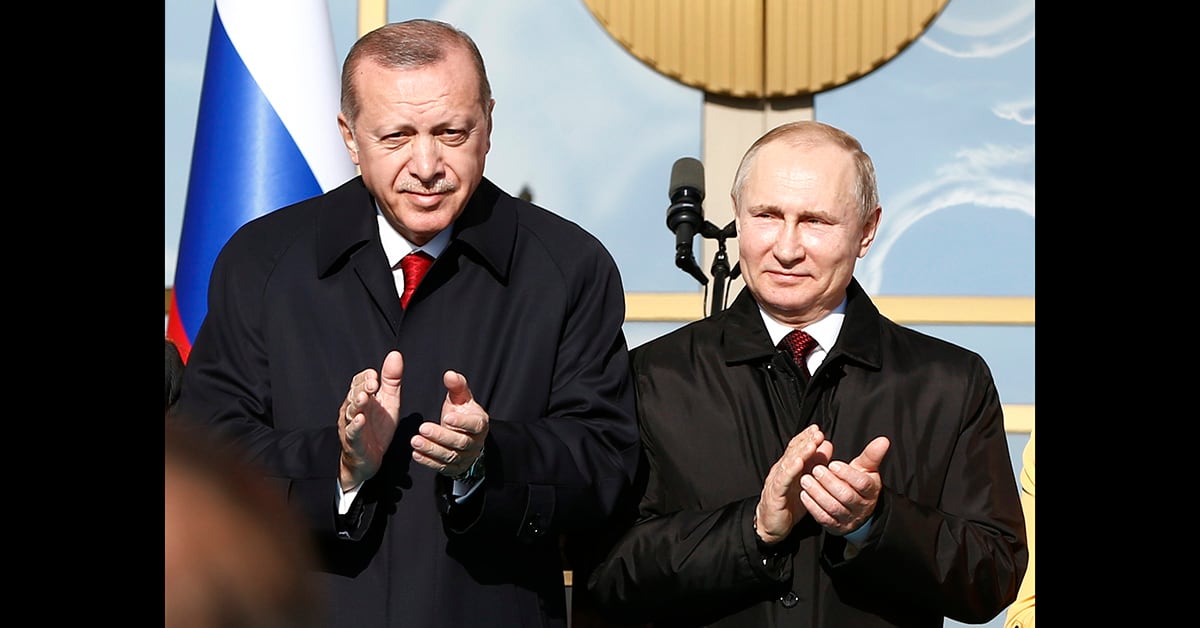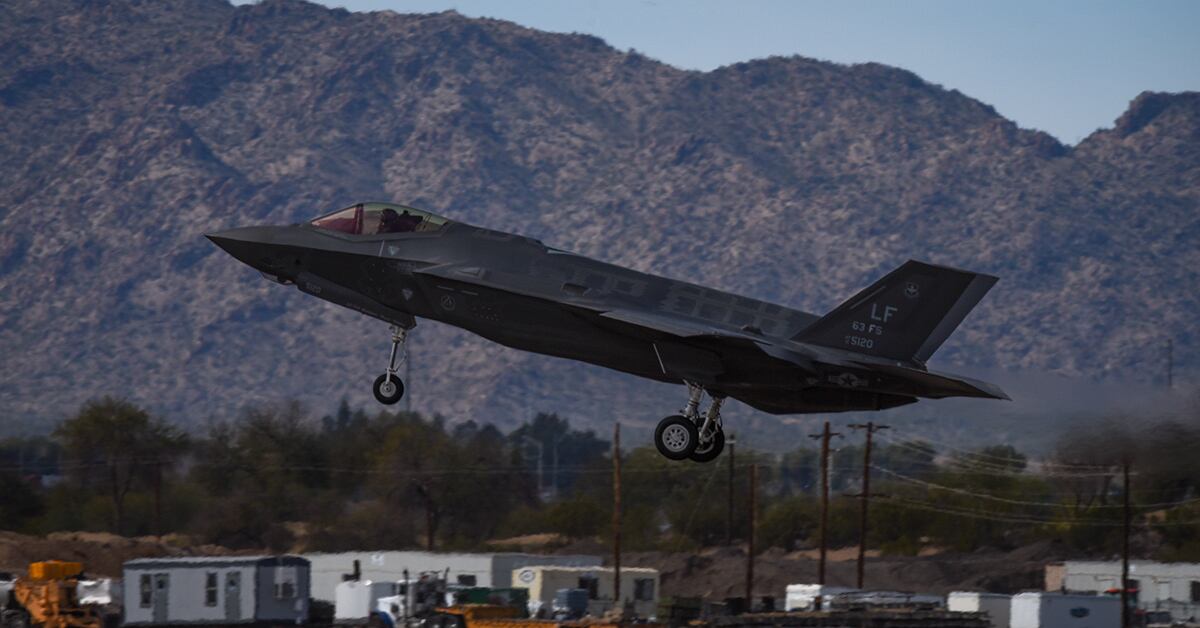Turkish pilots will continue training on the F-35A Joint Strike Fighter out at Luke Air Force Base, Arizona, even though the Pentagon suspended deliveries of F-35 equipment to Turkey over the country’s acquisition of a Russian missile defense system.
While U.S. officials say the Russian S-400 system poses a threat to the fifth generation stealth fighter, there is no security risk to training Turkish pilots to fly the aircraft.
“The training is continuing,” Pentagon spokesman Lt. Col. Mike Andrews told Air Force Times.
The concern isn’t that Turkish pilots would have access to F-35 technology, but that using the F-35 alongside a Russian-made air defense system could compromise the F-35 technology by feeding data on the aircraft to foreign adversaries.
“The S-400 would collect other types of data that would be helpful to anyone who doesn’t have the F-35," Andrews said.
“We’ve been very consistent on that," he added. "The S-400 is incompatible with the F-35 because of the collection efforts and because the S-400 is a Russian-made air defense system, and it’s not NATO inter-operable, which is why we’ve been offering the Patriot system.”
The Patriot surface-to-air missile system has been offered to Turkey as an alternative to the S-400, but Ankara officials have so far not been receptive to dropping the Russian technology altogether.
The first group of Turkish pilots completed their instructor training in March 2018, said Maj. Rebecca Heyse, a 56th Fighter Wing spokeswoman.
RELATED

“They are full-up instructor pilots,” she said. “It was a two-part course. They first completed the transition course into the F-35, and then they went through an instructor pilot upgrade course. That is completed and they will be staying as full-time instructor pilots in the 63rd Fighter Squadron for a couple of years.”
Heyse couldn’t disclose the exact number of Turkish pilots in the training pipeline. But there are two Turkish F-35 jets at the 63rd Fighter Squadron.
Luke AFB acts as a central hub for F-35A training. Each country involved in the program sends a cadre of pilots to transition into the F-35 and then become instructors at the Phoenix base.
“We have Australian, Norwegian, Italian, Turkish and Dutch instructor pilots that stay and train both international and U.S. pilots full time,” Heyse said.
For now, the Turkish pilots are staying at Luke AFB.
And while there is no security concerns related to their training on the aircraft, “should Turkey procure the S-400, their continued participation in the F-35 program is at risk," the Pentagon said in a statement Monday afternoon.

That would make it useless to have Turkish pilots training on an air frame they will never field operationally.
Air Force Gen. Tod Wolters, the nominee to helm U.S. European Command, concurred with the Pentagon’s standing line of reasoning Tuesday during his confirmation hearing.
"We all understand that Turkey is an important ally in the region,” Wolters said. "But it’s absolutely unsustainable to support co-location of an F-35 and S-400.”
U.S. Defense Secretary Patrick Shanahan was optimistic about there being a solution to the geopolitical squabble Tuesday, telling reporters that he is “very confident in the Patriot proposal that we’ve delivered to Turkey.”
“I’ve had a number of conversations with Defense Minister [Hulusi] Akar and I really think we’ll resolve this situation with our strategic partners,” he said.
Defense News reporter Joe Gould contributed to this report.
Kyle Rempfer was an editor and reporter who has covered combat operations, criminal cases, foreign military assistance and training accidents. Before entering journalism, Kyle served in U.S. Air Force Special Tactics and deployed in 2014 to Paktika Province, Afghanistan, and Baghdad, Iraq.





